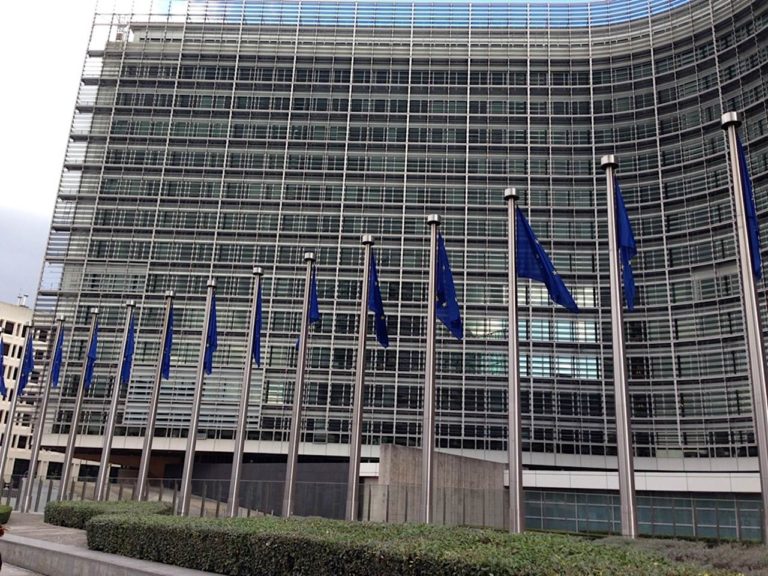Highlights from the Past Week
CW 25 / Monday, 20 to Thursday, 23 June: Mini-Plenary Sessions Week (Brussels);
NIS2 – ADOPTED BY COREPER, WHILE ITRE WAITS & SEES: The final version of the NIS2 Directive was adopted by COREPER on Wednesday. It now needs final adoption in the Council. On the parliamentary side, however, the Industry Committee (ITRE) still has to endorse this before the plenary. Before that, MEPs want to make sure that the text is fully aligned with the Digital Operational Resilience Act (DORA) and the Critical Entities Resilience Directive. While for DORA, the last technical meeting to fine-tune the text took place last week, policymakers still have to reach an agreement on the CER Directive, with the next political trilogue scheduled for Tuesday (28 June). The ITRE vote is therefore expected on 13 or 14 July, while the plenary approval might slip to October. (see Euractiv)
CSAM – EU PARLIAMENT WANTS ITS OWN IMPACT ASSESSMENT: The coordinators of the Civil Liberties Committee (LIBE) decided on 14 June to ask the European Parliamentary Research Service (EPRS) for a new impact assessment on the regulation on combatting online child sexual abuse (CSAM). Contexte (paywall, FR) reports from parliamentary sources that MEPs question the solidity of the impact assessment prepared by the Commission, with this assessment endorsed by the Executive Regulatory Scrutiny Board despite significant reservations. Before its own impact assessment can be prepared, the review of the Commission’s impact assessment by the EPRS is still expected in September.
ONLINE POLITICAL ADVERTISING – DRAFT REPORT PUBLISHED: On Friday, the European Parliament published the draft report (PDF) by Sandro Gozi (Renew) on the transparency and targeting of political advertising. In addition to the previously reported elements, the rapporteur has added an article on the identification of a political advertisement (including a significant link between the advertising and the election at stake) following the model proposed by the French Presidency of the EU Council. He proposes the prevention of political advertising sponsoring by companies from third countries. In addition to transparency, he has also added due diligence requirements for sponsors and providers of political advertising. Publishers must correct the published information or withdraw the advertising if it cannot be corrected.
The Commission is to adopt delegated acts on the display of advertising and provide transparency notices on their sponsors within six months of the entry into force of the regulation. In the last month preceding an election, notifications must be processed within forty-eight hours. In general, notices from “trusted flaggers” (as defined by the DSA) will be given priority. In terms of targeting and amplification, Gozi calls for publication of the parameters used: target groups, data sources, amplification goals, etc. The rapporteur adds regular fines for sponsors and service providers. A network of contact points is to be set up within the framework of the European Cooperation Network on Elections. The Regulators Group for Audiovisual Media Services (ERGA) is to be involved in the drafting of codes of conduct and guidelines. (see Contexte, paywall, FR)
The draft report is to be discussed in the IMCO Committee on either 11 or 12 July. The adoption of the report is scheduled for 28 or 29 November.
In the meantime, the Civil Liberties Committee (LIBE) hopes that the draft opinion will be sent out on 30 June for adoption in the committee on 26 September. In the Legal Affairs Committee (JURI), the plan is for the draft opinion to be sent out on 20 July, and for the final opinion to be adopted in the committee on 26 or 27 October. Two other opinions are expected from the Committee on Culture and the Committee on Constitutional Affairs. (see Contexte, paywall, FR)
ARTIFICIAL INTELLIGENCE – EU PARLIAMENT PUBLISHES AMENDMENTS: As already reported, more than 3,300 amendments to the AI Act were tabled in the leading committees (LIBE/IMCO). The EU Parliament has now published these amendments (PDF): 539-773, 774-1189, 1190-1580, 1581-2005, 2006-2355, 2356-2726, 2727-3019
The opinion of the Committee on Culture (PDF, rapporteur M. Kolaja, Renew) was also published last week.
DATA ACT – PENULTIMATE ACT: The Conference of Committee Chairs (CCC) has shared its recommendation for the allocation of competencies across the different committees involved. The opinion states that the Legal Affairs Committee (JURI) and the Internal Market Committee (IMCO) should have shared competencies on the entire file. The JURI Committee would get exclusive competencies on the protection of intellectual property rights and the provisions regarding private contracts, whereas the IMCO Committee would lead on the part related to interoperability and cloud switching. The division of tasks with the Civil Liberties Committee (LIBE) was maintained. The big loser is the Industry Committee (ITRE), whose role has been significantly downsized.
The Conference of Presidents is due to take the final decision next Thursday (30 June). (see Euractiv)
EPRIVACY – TECHNICAL TRILOGUE: The ePrivacy negotiations continue to drag on. A technical meeting last week started addressing the article on the permitted processing of electronic communications data, but the discussion only scratched the surface of very distant opinions.
Speaking at an event, the Parliament’s rapporteur Birgit Sippel regretted that the pace of the negotiation consisted of one political trilogue per presidency. (see Euractiv)
GREEN ICT – EU MINISTERS COMMIT TO THE ECOLOGICAL FOOTPRINT OF DIGITALISATION: At last week’s Digital Assembly in Toulouse, the Council signed a declaration on climate change that includes strengthening the EU’s capacity in immersive technologies. Member States have also agreed on the “necessity to go further in cloud sovereignty and data ownership”, French Economy Minister Bruno Le Maire said in a statement. They therefore call on the Commission to support the setting of specific targets for the ICT sector in view of the environmental transition and in the development of immersive technologies, in line with fundamental European values.
In addition, the members of the “Digital Commons” Working Group, established in February 2022, met to discuss the establishment of a European incubator and the means or a structure to provide guidance and support to Member States.
ICT INFRASTRUCTURE – COMMISSION PLANS NEW ACT IN THE SUMMER: A European Union proposal for an act on connectivity infrastructure will include steps to ease authorisation procedures for broadband infrastructure providers and promote access to other appropriate infrastructure for the roll-out of networks, a European Commission spokesperson said on Friday.
The new proposal will include a revision of the 2014 Broadband Cost Reduction Directive (BCRD) under the current working title “Connectivity Infrastructure Act”. It will put into effect the guidelines of the Connectivity Toolbox, which the EU has published to help countries accelerate fibre and 5G roll-out.
The proposal will be accompanied by a recommendation on Very High Capacity Networks (VHCN) and a revision of the guidelines on state aid for broadband. (see Politico Pro, paywall)
EUROPEAN COMMISSION – WORK PLAN FOR AUTUMN: According to the draft calendar of 20 June (PDF), the EU Commission plans to adopt the Media Freedom Act on 13 September, in parallel with the Single Market Emergency Instrument. The Cyber Resilience Act will follow a week later, on 21 September, and the instrument on adapting liability rules in the field of artificial intelligence and the revision of the Product Liability Directive on 28 September. The short-term rental proposal (Airbnb) is postponed from the first semester to 12 October. The Commission Work Programme for 2023 is expected on 18 October.
ONLINE CONTENT – COMMISSION PUBLISHES WORKING DOCUMENT ON CROSS-BORDER PORTABILITY: The Commission last week published a report on the application of the regulation on cross-border portability of online content services (Regulation (EU) 2017/1128), supported by a study on the practical application of portability rules by online content service providers (SMART 2019/0024). (see press release COM)
RT AND SPUTNIK – GERMAN FEDERAL NETWORK AGENCY SUPPLEMENTS ITS BLOCKLIST: Last week, the German Federal Network Agency (BNetzA) added the following entries to the list of websites to be blocked under the Sanctions Regulation (EU) 2022/879 and the Implementing Regulation (EU) 2022/994:
Rossiya RTR / RTR Planeta:
- https://smotrim.ru/pick/special-planeta
- https://www.glaz.tv/online-tv/rtr-planeta
- https://wwitv.com/tv_channels/7440.htm
- https://www.russisches-tv-fernsehen.de/rtr-planeta/
- https://a-russia.ru/rtr-planeta-online/
Rossiya 24 / Russia 24:
- https://spbtv.online/channels/rossiya_24.html
- https://smotrim.ru/live/21
- https://www.livehdtv.net/russia-24-rossiya-24-live-streaming/
- https://www.russisches-tv-fernsehen.de/rossija-24/
- https://vgtrk.ru/russia24, https://smotrim.ru/live/21,
- https://wwitv.com/tv_channels/b2244-Russia-24-live-tv.htm
- https://www.coolstreaming.us/channelnew/de/54075/Rossiya24TV.html
- https://ontvtime.tv/russia-1
TV Centre International:
- tvc.ru
- tvci.ru
DATA PROTECTION I – ITALIAN DATA PROTECTION AUTHORITY EXPRESSES CRITICISM ON GOOGLE ANALYTICS: Like its French and Austrian counterparts before, the Garante per la protezione dei dati personali considers that Google Analytics, as a result of the transfer of personal data to the USA, cannot be used without subjecting users to risk. It gives the website involved three months (IT) to adapt to the GDPR and calls on “all Italian operators of public and private websites” to do the same. (see Contexte, paywall, FR)
DATA PROTECTION II – CANADA PUBLISHES PROPOSAL: A three-pronged legislative proposal on data protection also aims to give citizens in Canada more control over their data.
Part 1 relates to the implementation of the Consumer Privacy Protection Act to regulate the protection of individuals’ personal data while addressing the need for organisations to collect, use or disclose personal data in the course of commercial activities.
Part 2 concerns the implementation of the Personal Information and Data Protection Tribunal Act, which establishes an Administrative Court to hear appeals against certain decisions of the Privacy Commissioner under the Consumer Privacy Protection Act and to impose penalties for breaches of certain provisions of that Act.
Part 3 would see the implementation of the Artificial Intelligence and Data Act to regulate international and interprovincial retail of artificial intelligence systems by requiring certain entities to take measures to mitigate the risks of harm and bias associated with highly effective artificial intelligence systems. The act provides for public reporting and empowers the Minister to order the production of documents in relation to artificial intelligence systems. The act also contains prohibitions relating to the possession or use of unlawfully obtained personal data for the purpose of designing, developing, using or providing an artificial intelligence system, as well as prohibiting the provision of any artificial intelligence system whose use seriously harms individuals.
(see Alex La Casse, International Association of Privacy Professionals).
Relevant Publications, including from the EP Think Tank:
- The Digital Single Market and the digitalisation of the public sector – GovTech and other innovations in public procurement (At a Glance)
- Metaverse: Opportunities, risks and policy implications (Briefing)
- Plenary round-up – June II 2022 (At a Glance)
Outlook for the Current Week
You can find a list of the upcoming dates of the European Parliament here. The meeting calendar for 2022 can be found here (PDF).
An overview of the most important dates of the Council week can be found here and the meeting calendar can be accessed here. On Friday, the Czech Republic takes over the Presidency for the second half of the year in succession to France.
Included among these dates are:
Summits and Ministerial Meetings:
- Transport, Telecommunications and Energy Council (incl. Fit for 55), Monday, 27 June – Agenda, A Items, A Items Addition, Background Brief;
- Environment Council (incl. Fit for 55), Tuesday, 28 June – Agenda, A Items, Background Brief;
Preparatory Bodies:
- Audiovisual Working Party (incl. Data Act), Monday, 27 June
- Working Party on Cooperation in Criminal Matters (COPEN), Monday, 27 June, Wednesday, 29 June and Friday, 1 July;
- Horizontal Working Party on Cyber Issues, ( CSAM, NIS2, UNO Cybercrime Convention), Tuesday, 28 June and Friday, 1 July;
- Working Party on Intellectual Property, Wednesday, 29 June
- Working Party on Consumer Protection and Information, ( Product Safety, Financial Service Contracts), Wednesday, 29 June and Thursday, 30 June;
- COREPER I, ( Common Chargers), Wednesday, 29 June;
- COREPER II, ( Global Gateway), Wednesday, 29 June;
Information on the weekly Commission Meeting can be found in the preview (PDF) or (at short notice) in the current agenda.
The following topic is on the agenda for the coming week:
- 2022 Strategic Foresight Report
You can find the judicial calendar of the ECJ here.
European Parliament Committees
CW 26 / Monday, 27 to Thursday, 30 June: Political Group and Committee Meetings Week (Brussels);
LIBE Committee (EP)
Current Meetings
- Monday, 27 June 2022, 14.30-18.30 (Brussels)
- Thursday, 30 June 2022, 14.00-16.00 (Brussels, with IMCO)
Excerpt from the Current Agenda
The current agenda is not yet available.
Further Meetings (Calendar)
- Open
JURI Committee (EP)
Current Meetings
- Thursday, 30 June 2022 (Brussels)
Excerpt from the Current Agenda
30 June 2022, 9.00 – 10.00
…
- Amending Regulation (EU) No 910/2014 as regards establishing a framework for a European Digital Identity
JURI/9/06239
***I 2021/0136(COD) COM(2021)0281 – C9-0200/2021
| Rapporteur for the opinion: | |||
| Pascal Arimont (PPE) | PA – PE731.697v01-00 AM – PE732.925v01-00 |
||
| Responsible: | |||
| ITRE* | Romana Jerković (S&D) | PR – PE732.707v01-00 | |
- Consideration of amendments
- Deadline for tabling amendments:10 June 2022, 12.00
…
30 June 2022, 10.30 – 11.00
- Transparency and targeting of political advertising
JURI/9/07815
***I 2021/0381(COD) COM(2021)0731 – C9-0433/2021
| Rapporteur for the opinion: | |||
| Angelika Niebler (PPE) | |||
| Responsible: | |||
| IMCO* | Sandro Gozi (Renew) | PR – PE732.754v01-00 | |
- Exchange of views
…
Further Meetings (Calendar)
- Wednesday, 13 July 2022 (Brussels)
- Thursday, 14 July 2022 (Brussels)
Dossiers Timetable (13 June 2022)
ITRE Committee (EP)
Current Meetings
- Monday, 27 June 2022, 15.00-18.30 (Brussels)
Excerpt from the Draft Agenda
The current agenda does not contain any topics of particular relevance for the Internet industry.
Further Meetings (Calendar)
- Wedneday, 13 July 2022 (Brussels)
- Thursday, 14 July 2022 (Brussels)
Dossiers Timetable (21 June 2022)
IMCO Committee (EP)
Current Meetings
- Thursday, 30 June 2022, 14.00-16.00 (Brussels, withLIBE)
Excerpt from the Current Agenda
The current agenda is not yet available.
Further Meetings (Calendar)
- Monday, 11 July 2022 (Brussels)
- Tuesday, 12 July 2022 (Brussels)
Dossiers Timetable (May 2022)
CULT Committee (EP)
Current Meetings
- None
Further Meetings (Calendar)
- Wednesday, 13 July 2022 (Brussels)
Further Scheduled Parliamentary Calendar Dates
- CW 27 / Monday, 4 to Thursday, 7 July: Plenary Sessions Week (Strasbourg);
- CW 28 / Monday, 11 to Thursday, 14 July: Committee Meetings Week (Brussels);
- CW 29 / Monday, 18 to Thursday, 22 July: No meetings;
- CW 30 to CW 33, Monday, 25 July to Friday, 19 August: Summer Recess;




